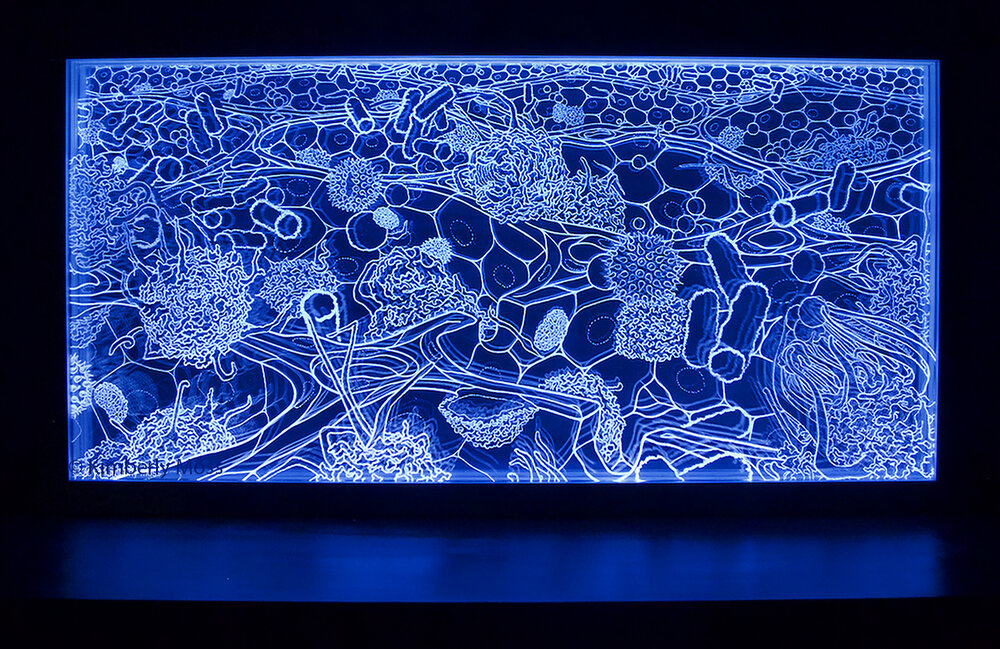They Got “Comprise” Backwards
These folks certainly aren’t dummies, but they’re guilty of a pretentiousism, using a fancier word than necessary, and in this case, the word is also incorrect. First the sentence:
Each of those 200-odd collisions generated enough energy to make two charm-flavored quarks, which weigh more than the lightweight quarks that comprise protons, but less than the gigantic “beauty” quarks that are LHCb’s main quarry..
https://www.quantamagazine.org/impossible-particle-discovery-adds-key-piece-to-the-strong-force-puzzle-20210927
- The sentence should have “compose,” which starts with the parts that then make a whole thing. They could even have said “…that make protons.”
- “Comprise” starts with the whole thing, then mentions its parts. The early United States comprised 13 colonies.
At least they didn’t write “comprised of.” Gack.
Here’s a picture that goes with the article:

Subscribe to this blog's RSS feed
Comprise and Composed Of
I ran into an article starting on page 232 in the current (Volume 109) American Scientist that uses both of these words correctly. Here’s “comprise”:
The work, comprising three stacked series of hand-etched glass panels (approximately 0.5 meter by 1 meter each) addresses resilience and plasticity in the body—a theme of damage and repair.
(Note the correct M-dash, too!)
Here’s the other sentence:
Each of the three pieces in this installation is composed of multiple glass panels stacked vertically to convey cellular elements in a three-dimensional space, or layers and depth of overlapping tissues.
And just to be sure you get it, here are the rules:
- Comprise goes from one to many, or the whole to a list of parts. In this case, work to panels
- Composed of means the same as comprise. Never say “comprised of.” So it goes from Each (singular) to multiple panels (plural).
- Compose by itself goes from parts to the whole. “Three panels compose one piece of art.”
Here’s a picture from the author’s site:

Tricky But Correct
I know, I’ve mentioned this topic several times, but the topic is worth repeating because so many writers get “comprise” wrong. Here’s one of the few who got it right.
Company revenue last year climbed to $24.3 million, up 47% from 2019, and co-owner Jeff Snell told the Kansas City Business Journal barndominiums now comprise about 25% of sales, up from 1% five years ago.
https://link.bizjournals.com/view/5fd8a90421afe73c1de6c3d4dvt3o.103v/14e50edc last article
Remember: Compose goes from the parts to the whole; comprise goes from the whole (usually a singular) to the parts, which are usually plural. So “barndominiums” is the whole thing (a company, not a bunch of places), and “25%” is the part, which can be either a singular or a plural, depending on how you care to look at it.
Here’s a picture of a barndominium:

Another correct “Comprise”
Look for “comprise” in the search box to find more examples.
Gascoigne, an amateur astronomer of Middleton, near Leeds, was the youngest member of an enthusiastic little band of Midland astronomers which comprised Horrocks, Crabtree, and Oughtred.
https://www.academia.edu/41400791/THE_HISTORY_OF_THE_TELESCOPE
Page 94. You have to be pretty interested in astronomy, but if you are, the book is pretty interesting. It’s about 500 pages long, with plenty of footnotes at the end of each chapter.
Remember, “comprise” goes from the whole to its parts.
(It should be “that” instead of “which,” but I’m nit-picking.)
PS—I ran into another correct usage, from The New England Journal of Medicine:
This on-line advisory panel comprises approximately 5,000 VUMC patients, representing a broad cross-section of our community.
https://catalyst.nejm.org/doi/full/10.1056/CAT.20.0299
A Different Incorrect “Comprise”
I post these examples because so many people get “comprise” wrong. (NEVER say “is comprised of”!) This comic gets it wrong another way. The second panel in the second row:
“Comprise” goes from the single big thing to the many parts. An example: The early US comprised 13 states. You could say that “comprise” is the less wordy equivalent to “is composed of.” But here “composed” would have been okay. He’s going from the many (millions of polygons) to the big whole (the material world). In other words, those polygons compose the world.
Oh well.

